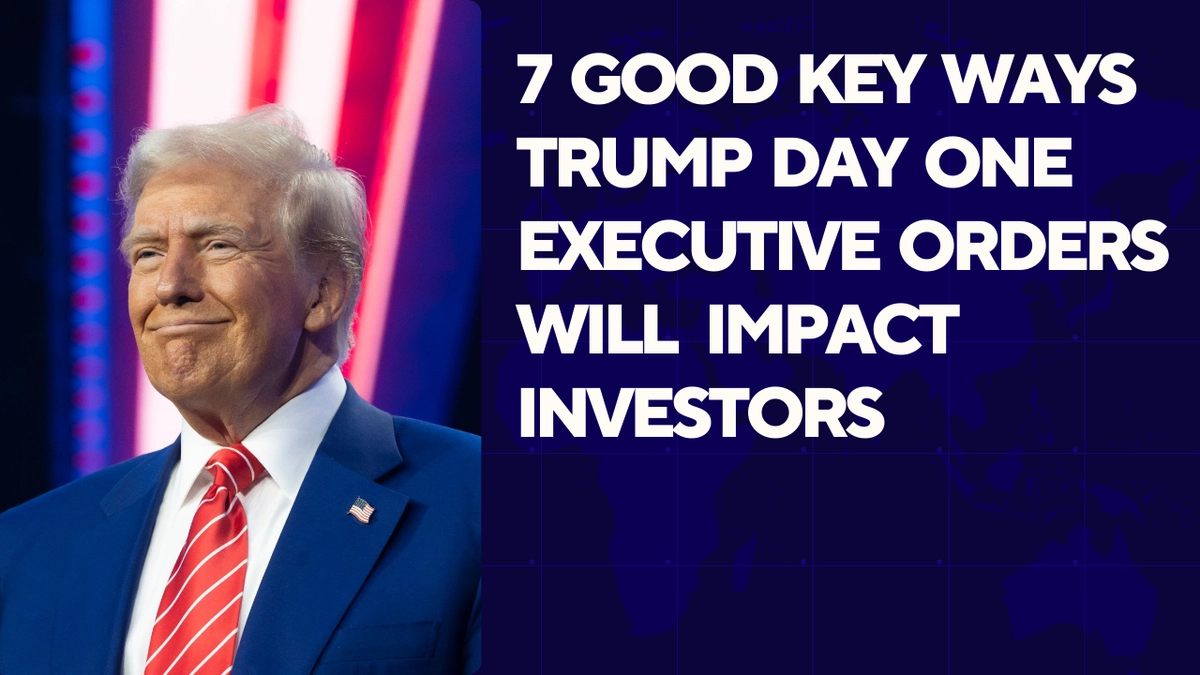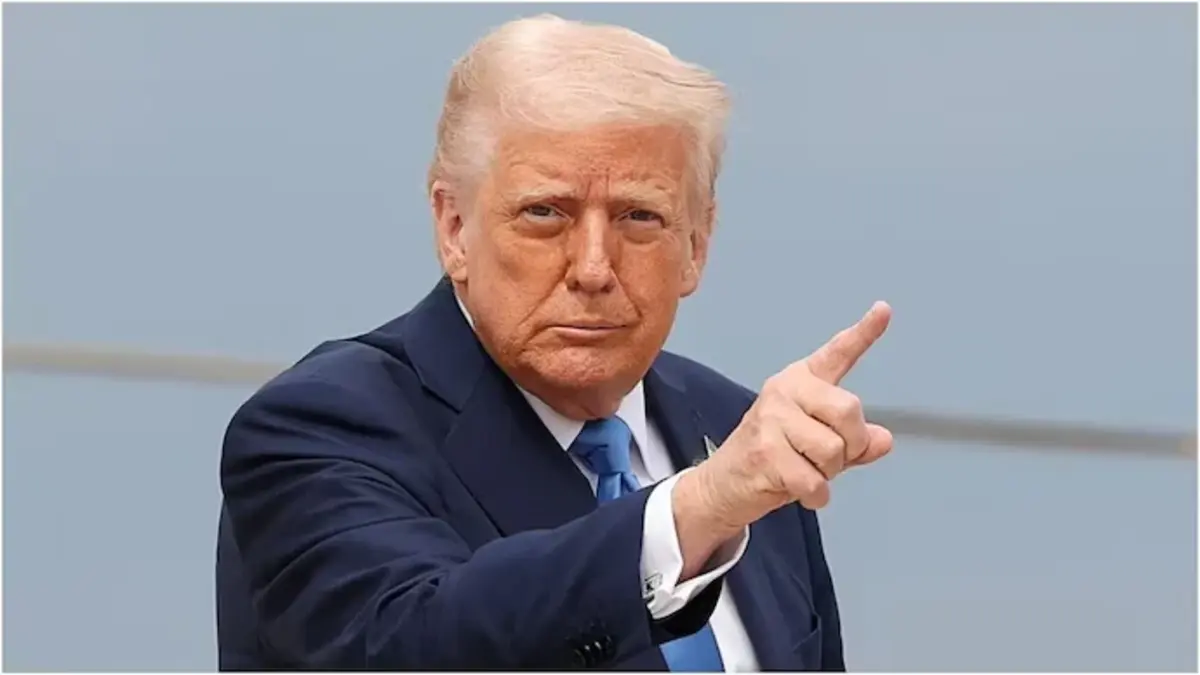As the inauguration of Donald Trump approaches for his second term, expectations are running high regarding the immediate changes he plans to make. On Day One, Trump is expected to sign a flurry of executive orders, each designed to enact his agenda quickly and set the tone for his administration’s priorities. For investors, understanding how these actions will impact the markets is critical to navigating the potential volatility. In this article, we will explore 7 Revolutionary Key Ways Trump Day One Executive Orders and offer insights on what could lie ahead.
- 1 1. Energy Industry Boost – 7 Revolutionary Key Ways Trump Day One Executive Orders Will Impact Investors
- 1.1 2. Immigration Crackdown – Disruption to Labor-Intensive Industries
- 1.2 3. Tariffs and Trade War Reboot – A New Era for Global Trade
- 1.3 4. Bureaucratic Overhaul – Streamlining the Federal Workforce
- 1.4 5. Energy Independence – Increased Investment in Domestic Energy Production
- 1.5 6. Tech and Social Media – The Reversal of Biden’s TikTok Ban
- 1.6 7. Global Economic Strategy – Potential for Market Volatility
1. Energy Industry Boost – 7 Revolutionary Key Ways Trump Day One Executive Orders Will Impact Investors
One of the most anticipated actions Trump is expected to take is a sharp focus on deregulation within the energy industry. On Day One, expect Trump to sign executive orders that will have an immediate effect on fossil fuel production, particularly about oil, natural gas, and coal. Trump has promised to reverse several Biden administration policies, including halting the approval of new offshore drilling permits and re-opening federal lands to oil exploration.
Read More
5 Powerful Insights About Ambetter Health Insurance, Is It Right for You in 2025?
What Types of Insurance Coverage Does First Chicago Insurance Offer?
For investors in the energy sector, 7 Revolutionary Key Ways Trump Day One Executive Orders are clear: companies within the fossil fuel industry stand to benefit from a more relaxed regulatory environment. Energy companies, especially those involved in drilling and coal mining, are likely to experience a surge in stock prices as the administration rolls back environmental restrictions. The Energy Information Administration (EIA) has indicated that Trump’s policies could help expand U.S. energy exports, particularly liquefied natural gas (LNG). Therefore, investors looking to invest in these areas might see an immediate opportunity.
However, this deregulation could be met with opposition from environmental groups and lead to increased scrutiny of Trump’s environmental policies. For investors, this could mean long-term fluctuations as legal challenges emerge.
2. Immigration Crackdown – Disruption to Labor-Intensive Industries
Trump’s strong stance on immigration has been one of his most defining policies, and it will likely feature prominently in his Day One executive orders. Expect to see aggressive moves aimed at tightening border security and targeting illegal immigration. His promises include ramping up immigration raids, constructing more barriers at the U.S.-Mexico border, and revising asylum policies.
For investors, the Trump Day One executive order’s impact on investors could be profound, especially in labor-intensive industries that rely on immigrant workers, such as agriculture, construction, and hospitality. The immediate impact of immigration policies could disrupt the labor supply in these industries, leading to higher labor costs and potential productivity slowdowns in the short term.

On the flip side, businesses involved in border security technologies, private detention facilities, and surveillance equipment could see a boost. Companies that provide services or technologies related to immigration enforcement may also experience a rise in stock prices. Investors in these sectors should keep an eye on how immigration policies evolve, as this could lead to both short- and long-term opportunities.
3. Tariffs and Trade War Reboot – A New Era for Global Trade
When Trump took office in 2016, he made waves by implementing new tariffs on Chinese goods and other foreign products. On Day One of his second term, Trump Day One executive order’s impact on investors will likely center around his approach to global trade, especially tariffs on Mexico and Canada. Trump has previously mentioned that he plans to impose a 25% tariff on all products coming into the U.S. from these countries due to concerns about drugs, crime, and national security.
For investors, the impact of these tariffs will be felt across a range of sectors. Companies that rely on imports from Mexico and Canada, especially in the automotive industry, agriculture, and consumer goods, could face higher costs. In particular, the automotive industry will be under pressure, as many car parts and components are sourced from Mexico. The knock-on effect of Trump’s tariffs could include higher consumer prices and potential market volatility as trade tensions escalate.
On the other hand, companies that focus on domestic production may benefit, as tariffs on foreign goods make locally sourced products more attractive. Investors with exposure to U.S.-based manufacturing or companies that produce goods domestically could see their portfolios perform well in the short term.
4. Bureaucratic Overhaul – Streamlining the Federal Workforce
Another Day One executive order that Trump is expected to implement focuses on streamlining the federal bureaucracy. Trump has long emphasized the need to reduce the size of the federal government, and his executive orders could include efforts to cut back on government employees, as well as reduce the number of agencies that oversee key industries like energy, healthcare, and finance.
For investors, the Trump Day One executive order’s impact on investors could be seen in how government regulations evolve. If Trump’s policies result in fewer regulations or more industry-friendly practices, investors in sectors like healthcare, finance, and technology could benefit. Deregulation could lead to a boost in private sector growth, particularly for businesses in heavily regulated industries that would stand to gain from a reduced regulatory burden.
That said, the executive orders aimed at reshaping the federal workforce may face significant opposition, especially from public sector unions and progressive groups. While these changes may lead to a more business-friendly environment, they may also create instability, which could negatively affect the stock market in the short term.
5. Energy Independence – Increased Investment in Domestic Energy Production
On Day One, Trump is expected to sign several executive orders focused on energy independence. By dismantling regulations on oil, gas, and coal production, Trump aims to ensure that the U.S. can meet its energy needs without relying on imports. This would include actions to expand oil drilling, fracking, and coal mining on federal lands and offshore drilling areas.
For investors, this shift could have a major impact on the energy sector. Trump’s Day One executive orders will likely encourage domestic energy production, particularly for oil and natural gas, making companies in these sectors more competitive. Energy stocks related to fossil fuels are likely to see an immediate boost as Trump’s policies take hold. Additionally, the United States could become a more attractive destination for foreign investment in energy infrastructure, potentially increasing the valuation of energy companies.
However, the long-term consequences of Trump’s push for energy independence remain to be seen. Environmental advocates will likely continue to oppose Trump’s energy policies, and their efforts could impact public opinion and possibly result in legal challenges that affect the broader energy landscape.
6. Tech and Social Media – The Reversal of Biden’s TikTok Ban
Trump’s Day One executive orders could also have a significant impact on technology and social media companies, especially regarding the previously announced TikTok ban. Trump has signaled that he intends to reverse the Biden administration’s policy on TikTok, which had been slated for a ban. On Day One, he could issue an executive order either delaying or entirely reversing the ban on TikTok, a move that would have widespread implications for the tech industry.

For investors, the reversal of the TikTok ban would likely have a positive impact on technology stocks. The social media platform’s parent company, ByteDance, and other social media giants such as Facebook and Twitter could see significant market gains if Trump softens his stance toward Chinese-owned apps. This could lead to renewed confidence in the U.S.-China tech relationship and potentially spark a rebound in tech stocks that have been under pressure due to regulatory uncertainty.
However, the Trump administration’s stance on big tech remains unpredictable, and there is still the possibility that regulatory scrutiny of companies like Facebook, Google, and Amazon could increase, depending on the direction Trump decides to take.
7. Global Economic Strategy – Potential for Market Volatility
As Trump takes office, his Day One executive orders will likely signal his broader global economic strategy. Trump’s “America First” approach will continue to shape his policies, potentially leading to a rebalancing of trade agreements and a renewed focus on boosting domestic manufacturing. At the same time, Trump’s stance on tariffs, immigration, and energy production could create significant market volatility, especially in industries that are highly exposed to global trade.
For investors, this means that Trump’s Day One executive orders could trigger both short-term opportunities and risks. While companies focused on domestic production may thrive, sectors tied to international supply chains could experience turbulence. Additionally, investors will need to monitor the stock market for any signs of instability resulting from geopolitical tensions or shifts in global economic dynamics.








